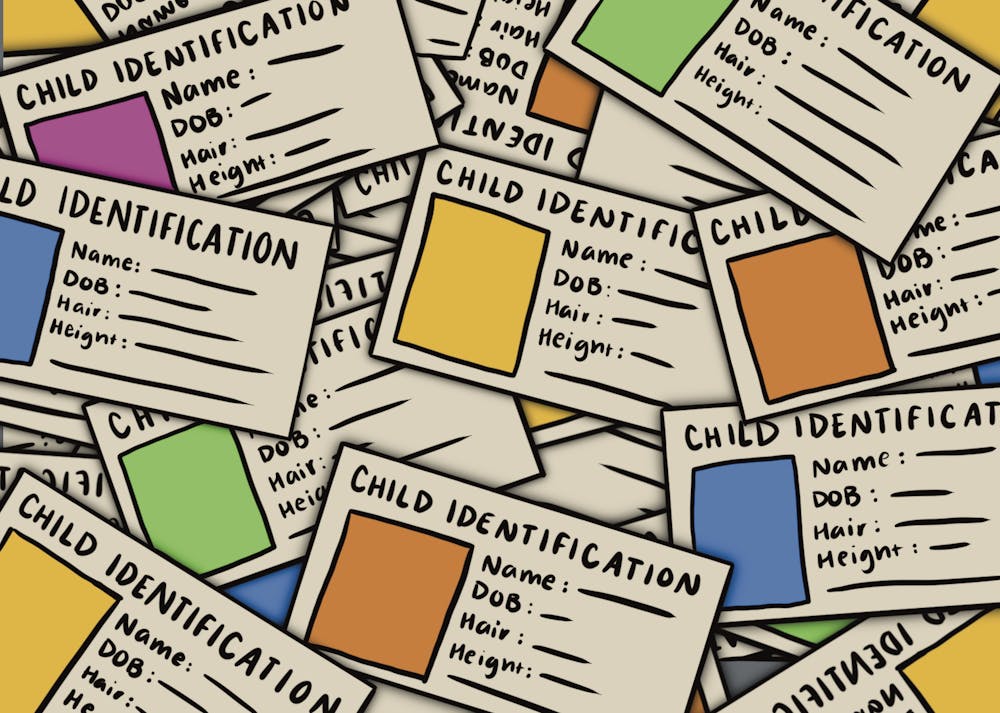A new law sponsored by State Rep. Jennifer Jermaine (D-Chandler) aims to reduce the number of missing Indigenous youth and foster children, who disappear at disproportionate rates in Arizona.
The bill, House Bill 2098, went into effect in September. Jermaine, an ASU graduate and a first-generation descendant of the White Earth Nation, said "what we found is that murders of Indigenous women and girls have been steadily increasing over the last 40 years."
Arizona has the third-highest number of missing and murdered Indigenous women and girls in the U.S., according to a 2017 study. As of June 2020, 267 Arizona foster children were missing from state custody. One in six missing children were likely sex trafficking victims in 2020.
HB 2098 requires law enforcement agencies, including the ASU Police Department, to report all available information on missing children to state and federal databases within two hours of receiving a report. Under the statute signed by Gov. Doug Ducey in May, information about missing children cannot be removed from databases as long as cases remain open.
Marlon Bailey, an associate professor from ASU's School of Social Transformation, said Black, Brown, and Indigenous children go missing at disproportionate rates and they often do not receive the same attention as white women. He pointed to what happened with Gabby Petito, a white woman who had been missing and led mainstream media headlines for days.
"That's the kind of discussion that people in Arizona and other states like it do not want us to initiate in because it explains why the whole society is required to stop and think about the missing white woman, as opposed to the numerous Black, Brown and Indigenous children that are missing all the time," Bailey said.
Jermaine said HB 2098 promotes collaboration between police departments and will reduce jurisdictional issues currently preventing police from quickly locating missing children.
"We've got a cross-jurisdictional collaboration problem. So building that collaboration and enabling law enforcement agencies from across jurisdictions to talk to each other, and to access the same data, we're hoping is going to help ease some of these issues," Jermaine said.
Jermaine said foster children are at higher risk of being trafficked than other children and teenagers who disappear from the foster care system are not always reported.
"It was teenagers that were not being properly reported as missing children. So we want to make sure that we're catching all of those teenagers that fall into those missing categories so that we can start looking for them immediately," Jermaine said. "The first 24 hours are critical."
Jamie Landers, a former foster child and ASU alumna, wrote about the difficulties foster children face when they age out of the system for Teen Vogue. Some foster children find it difficult to apply to college due to a lack of financial resources.
One report found between 32 and 45% of foster children pursue higher education after graduating high school, as opposed to 67% of the general population. Those who do pursue a college education are more likely to drop out or suffer academically.
Landers said foster children are more likely to be victims of sex trafficking, and the state needs to do more to educate foster children and prepare them for college so they are less likely to be forced into sex trafficking.
"We just don't have an adequate system to hold people accountable for missing and murdered foster children," Landers said.
Bahney Dedolph, the deputy director for the Arizona Council of Human Service Providers and a faculty associate at the Watts College of Public Service and Public Policy's School of Social Work said although no study has confirmed missing foster children are more likely to be trafficked than the general population of missing children, missing foster children may be more vulnerable because of past trauma.
READ MORE: Students, staff study impacts of missing and murdered Indigenous women
"Now, (foster children) are easy victims, unfortunately, because of their past life experiences and because of the trauma that they've experienced both in their family of origin and often the system-induced trauma of multiple placements," Dedolph said.
Dedolph, who is teaching a master's level social work administration class said she teaches students about the importance of data collection and using it appropriately as not to perpetuate stereotypes or mischaracterize foster kids.
Sen. Nancy Barto (R-Phoenix) sponsored Senate Bill 1019, requiring the state to issue free identification to foster children in group homes. Information from the IDs must be uploaded to a national database when they are reported missing.
Landers said one issue with locating missing foster children is few have accurate and up-to-date pictures of themselves to be distributed as part of search efforts. However, Landers said SB 1019, which was signed by Ducey in May, could change that.
"To have the photo ID, that makes all the difference," Landers said.
Reach the reporter at mphughe3@asu.edu and follow @MasonHu29413328 on Twitter.
Like The State Press on Facebook and follow @statepress on Twitter.
Continue supporting student journalism and donate to The State Press today.




